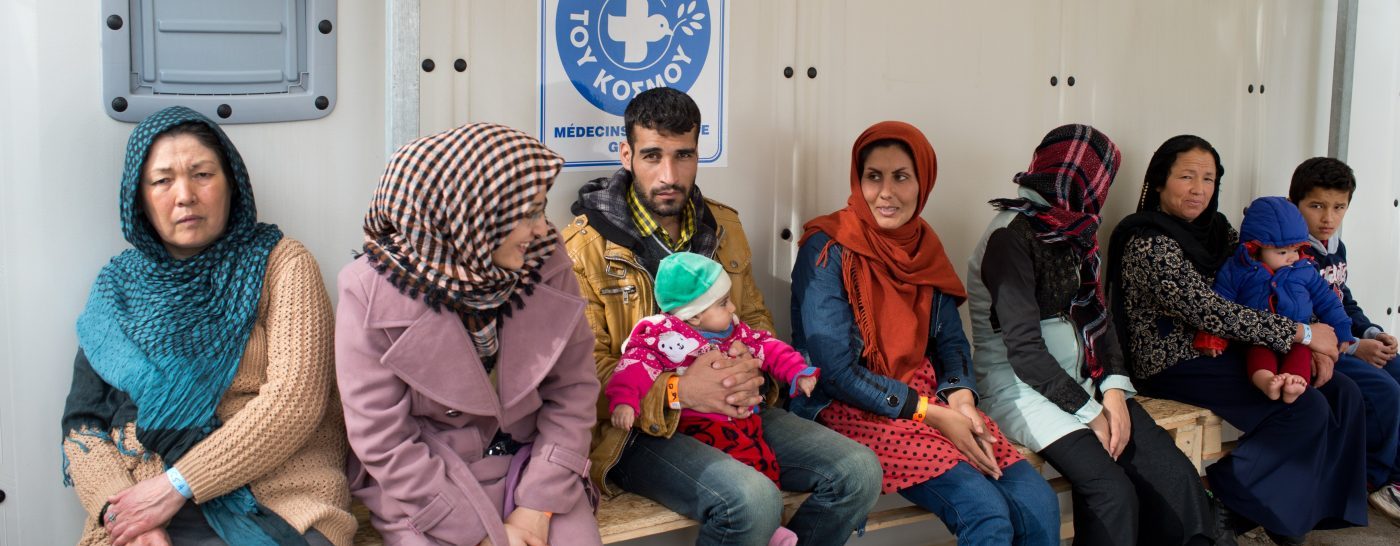Greece’s refugees suffer deepening mental health issues as limbo drags on
Published 2nd August 2017
In recent weeks, several reports have highlighted a “silent crisis” amongst Greece’s refugees. Stuck in limbo in unsafe camps, many families are suffering from increasingly serious mental health problems.
A new Human Rights Watch report, which includes contributions from Doctors of the World, has documented cases of self-harm, suicide attempts, aggression and anxiety. Another recent report has found that one in three refugees in camps on the island of Chios had witnessed a suicide there.
“We see a lot of people with mental health problems like depression, and it gets worse the longer they are in the camps. People get frustrated because they don’t know what’s happening with their lives,” says Kharman Adhim, a volunteer translator for Doctors of the World who works primarily with refugee women.
“The majority of people we see need counselling – and not just the women, but their children too.”
Over the past year, thousands of refugee families have become stuck in Greece while they are assessed for a possible return to Turkey or apply to join relatives in Europe. A March 2016 deal deemed that many refugees arriving in Greece could be returned to Turkey, but in practice a backlog of claims and appeals has left vulnerable people confined to Greece’s islands for months.
To complicate things further, this week the EU has ended most of its funding for aid organisations’ work with these refugees and is funding the Greek government to take over services instead. You can see an Al Jazeera report on this, which includes a visit to our mobile clinic in Chios, below:
Doctors of the World and several other charities are concerned that the handover will create gaps in vital services for refugees, especially as few details about the transition have been released. We have called on the Greek government to release a national plan for this transition.
“A month ago, we did not renew the contracts of our 58 employees, including those responsible for more vulnerable people such as victims of torture, unaccompanied minors, and pregnant women,” says Stathis Poularakis, a spokesman for Doctors of the World Greece.
Many of Greece’s refugees are already suffering from trauma upon arrival, after fleeing war, losing loved ones, and undertaking dangerous journeys. Any gaps in support for refugees in the camps could further exacerbate this existing trauma.
“I recently translated for a Syrian woman in her 50s who would suddenly bring up memories of happy times and cry,” says Kharman, who was interpreting for the woman during a session with one of our psychologists in the camps.
“She would say things like ‘My children and I always used to celebrate my birthday together’, or ‘I miss my neighbour’. The life that she knew is just memories now. She has no normality.”
Doctors of the World’s medics treat refugees in camps, shelters, and unfamiliar new homes across the globe. Please donate now to make a difference and help save lives.
